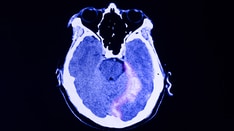Researchers have developed and validated a novel hybrid computational research method to aid in discovering the causes of psychiatric disorders and pinpointing relevant treatment targets.
"Psychiatric disorders are complex," and current methods and data analytic approaches to psychiatric research cannot reliably infer causal relations without experimental designs, or make inferences about the functional properties of the complex systems in which psychiatric disorders are embedded, lead researcher Glenn Saxe, MD, psychiatrist and director, New York University Langone Child Study Center, in New York City, told Medscape Medical News.
"Typical data methods used in the field look at small sets of variables, relatively speaking, and how one influences the other, but there is a strong literature outside of psychiatry on complex systems that allow you to look at the whole system, not just parts of the system. Looking at the whole system might identify important treatment targets," he said.
In a project spanning 8 years, Dr Saxe and his collaborators created a method and set of computational tools to integrate causal discovery within a network science framework for psychiatric research.
They describe their Complex Systems–Causal Network (CS-CN) method in an article published online March 30 in PLOS One.
"Our approach enables both complex and causal systems inference in a unified analysis so that psychiatric investigators can understand the properties of the systems in which psychiatric disorders emerge and are sustained, and search these systems for causal information about their most critical points of vulnerability," they write.
Novel Findings in PTSD
In an initial validation study, the researchers applied the CS-CN method to an existing psychopathology dataset involving 163 traumatized children who had been hospitalized with injuries and were at risk for post-traumatic stress disorder (PTSD).
"The CS-CN method successfully detected a causal network of 111 variables and 167 bivariate relations in the initial validation study. This causal network had well-defined adaptive properties and a set of variables was found that disproportionally contributed to these properties. Modeling the removal of these variables resulted in significant loss of adaptive properties," the researchers report.
In a replication study, they applied the method to a much larger dataset of more than 14,000 traumatized children. They then applied the CS-CN method in a "resimulation controlled experiment" using a gold standard dataset for causal discovery and compared it with other methods for accurately detecting causal variables.
The CS-CN method proved successful in the replication study and "performed better than traditional statistical methods, and similarly to state-of-the-art causal discovery algorithms in the causal detection experiment." The method yielded both novel and previously validated findings related to PTSD, the researchers report.
For example, three of the top four variables in the validation study (the CRHR1 gene, the FKPB5 gene, and the child's dose of morphine) have all been shown previously to be related to PTSD. What makes them novel, say the researchers, is that these three variables were causally related to the development of psychopathology, "a conclusion that could not be inferred from any previous study."
"The type of knowledge revealed by the CS-CN method for child traumatic stress could have broad relevance for psychiatry," the researchers say. "The capacity of the CS-CN method to identify the variables (of whichever modality) that disproportionally contribute to the stability of psychiatric disorders may generate important information related to risk profiles, early intervention strategies or new approaches to prevention or treatment. Certainly, methods that enable causal inference without experimental study designs are broadly applicable in psychiatry, as is the need to derive better understandings of the complex system that may sustain many psychiatric disorders," they conclude.
Dr Saxe said it is important to note that "almost all knowledge in psychiatry is in essence correlational, and we were able to imbed causal discovery algorithms within our method. So, in essence, for the first time in psychiatry research, this allows you to do systems inference within a dataset, but also causal inference."
"Very Significant Advance"
Commenting on the article for Medscape Medical News, Guillermo A. Cecchi, PhD, computational neuroscience researcher at IBM's Thomas J. Watson Research Center in Yorktown Heights, New York, said the work by Dr Saxe and his group "represents a very significant advance in psychiatry research, because it presents a validated framework to predict individual outcomes. Moreover, they use a causal modeling approach, which provides a mathematically sound way to identify variables that determine, as opposed to 'correlate with,' the outcomes.
"Most studies in psychiatry," Dr Cecchi added, "and even basic neuroscience report correlational group differences, whereas for actual clinical applications, what we need is to predict outcomes for individual patients and to identify the causes that affect their (again, individual) outcome. This in turn will allow not only for a more rational patient care (knowing how the patient will evolve) but also for better treatment (knowing how to intervene).
"This approach is, in my personal opinion, not only the future of psychiatry but of the entire medical field," Dr Cecchi said.
This research was supported by the National Institute of Mental Health and the Substance Abuse and Mental Health Services Administration. The authors and Dr Cecchi report no relevant financial relationships.
PLoS One. Published online March 30, 2016. Full text
Medscape Medical News © 2016 WebMD, LLC
Send comments and news tips to news@medscape.net.
Cite this: Novel Tool May Be a Game Changer for Psychiatry Research - Medscape - Apr 08, 2016.







Comments